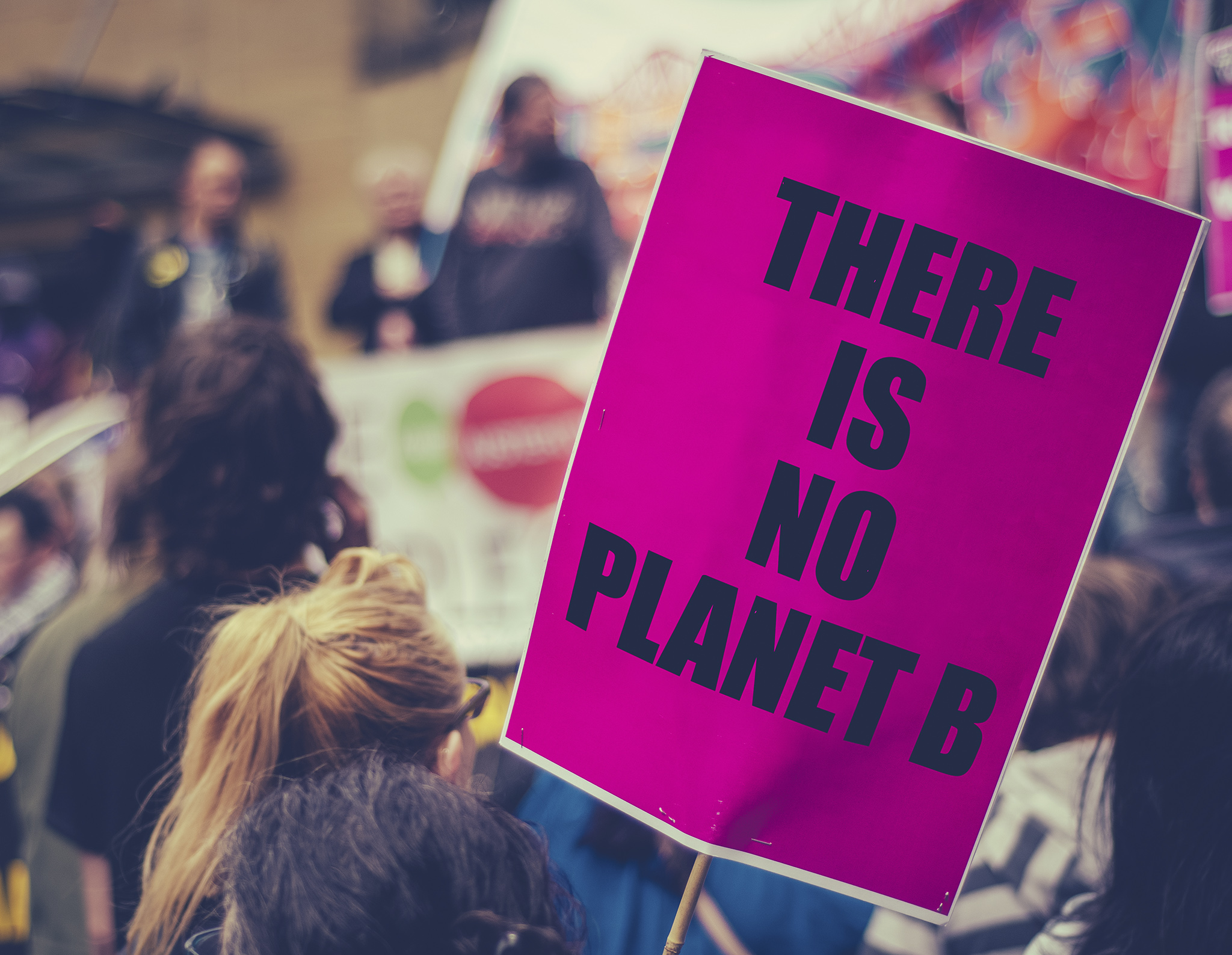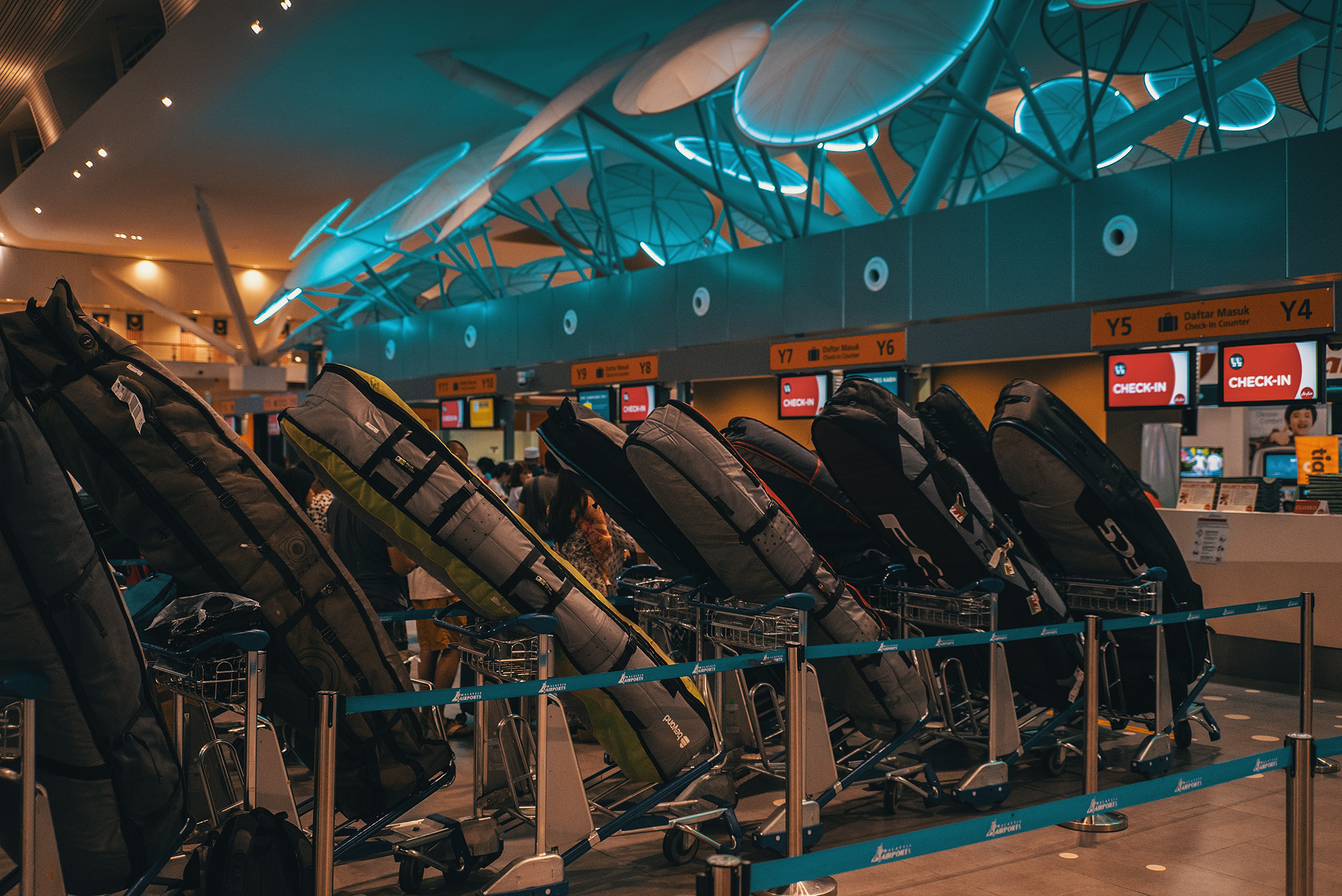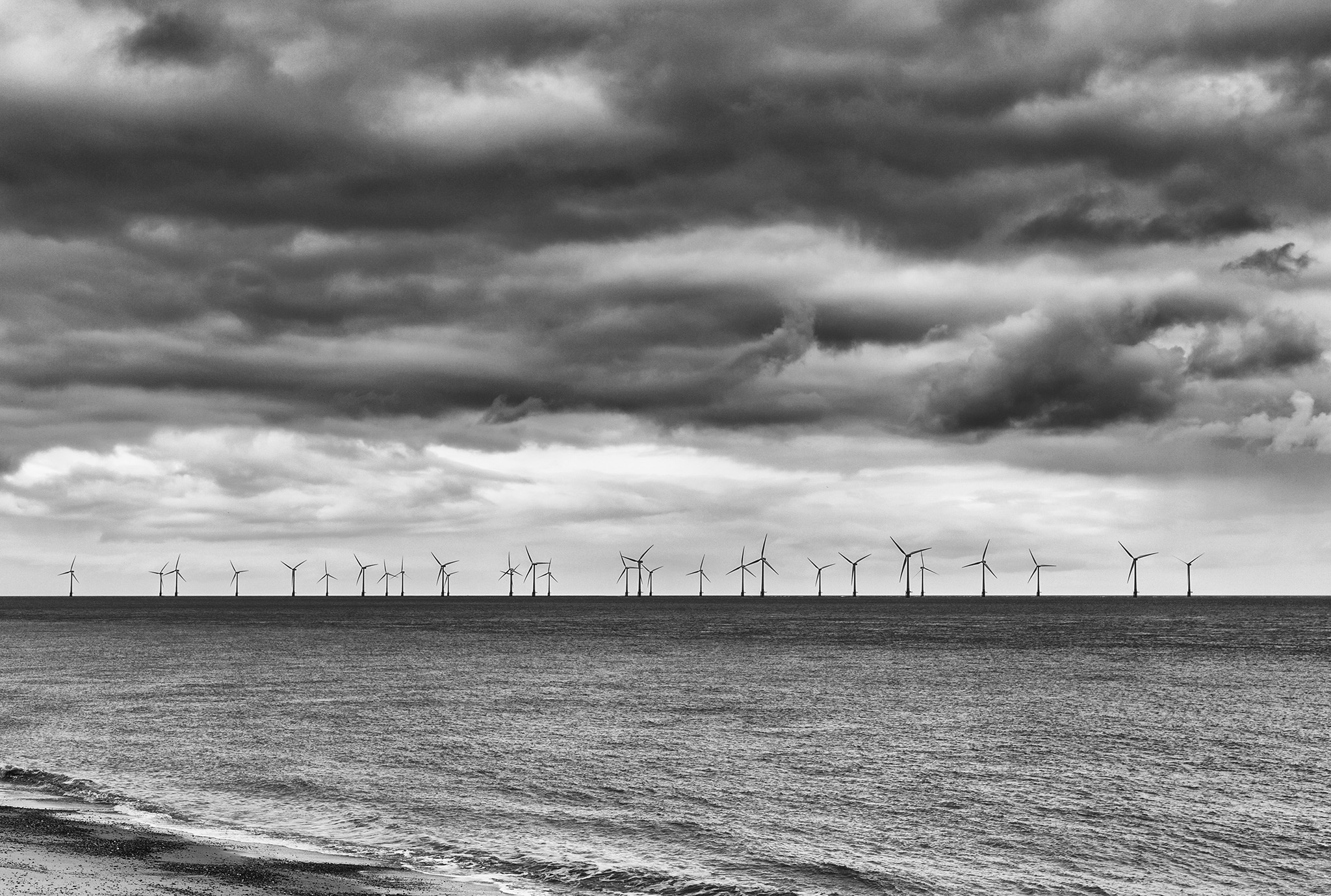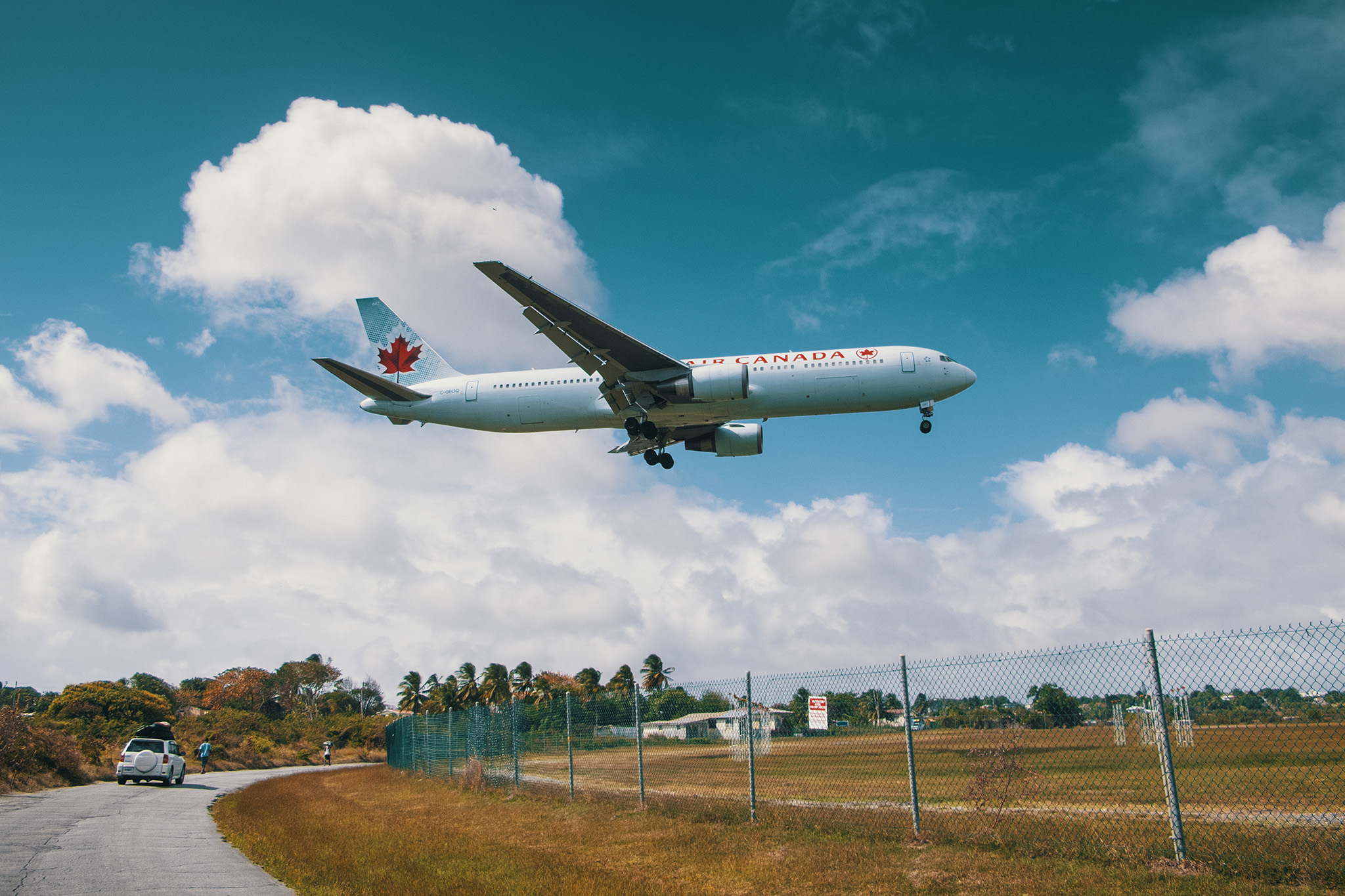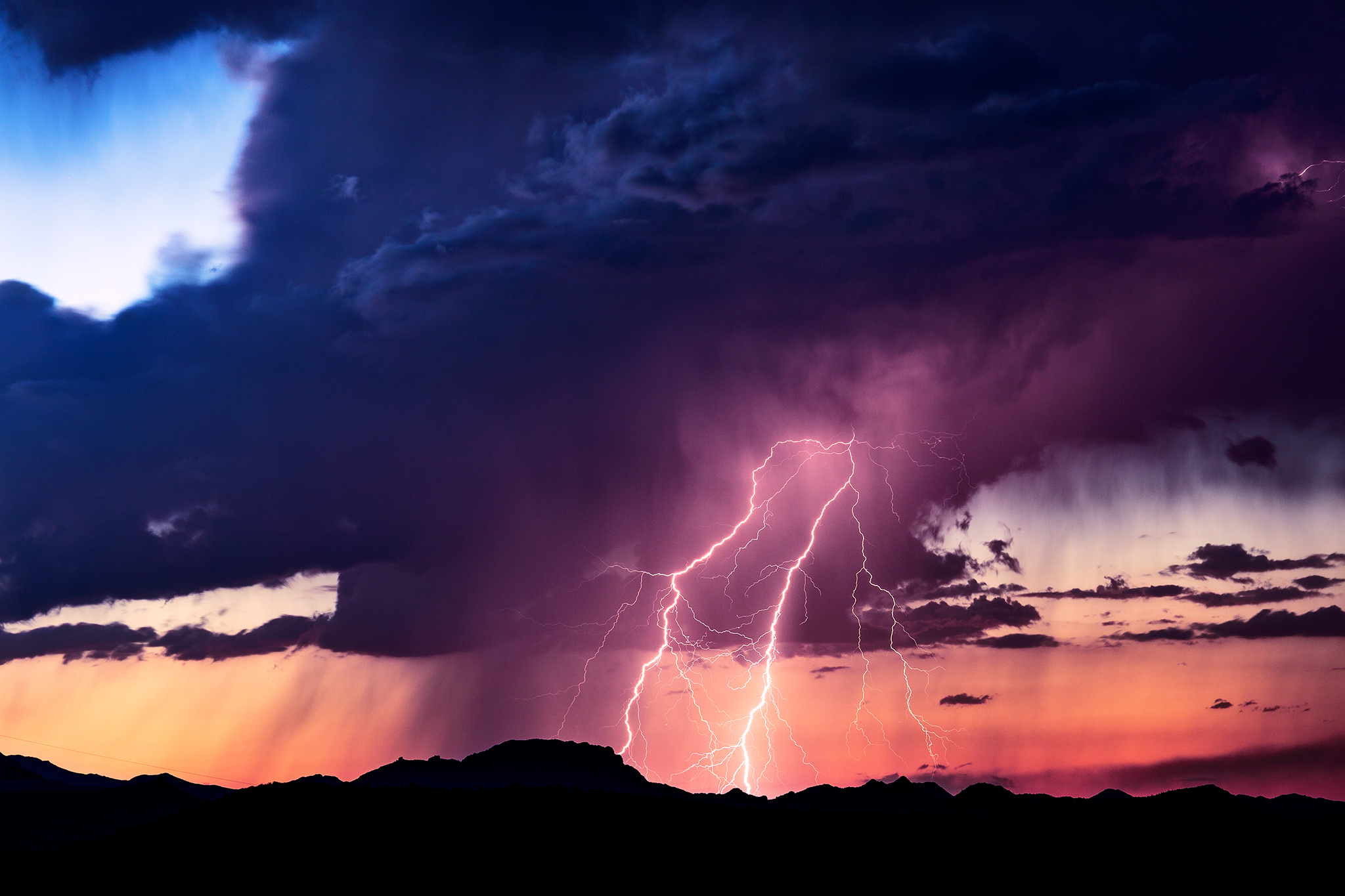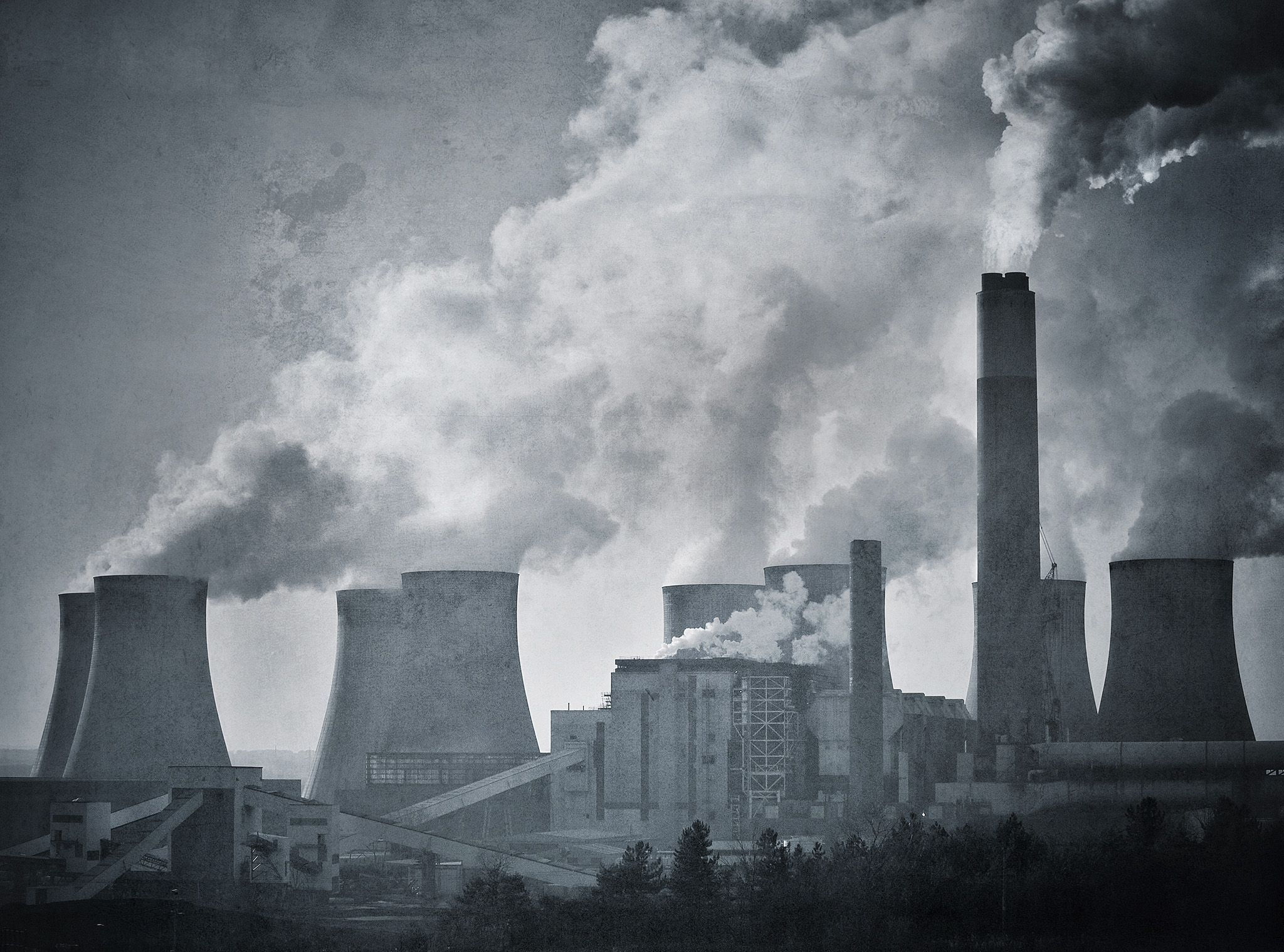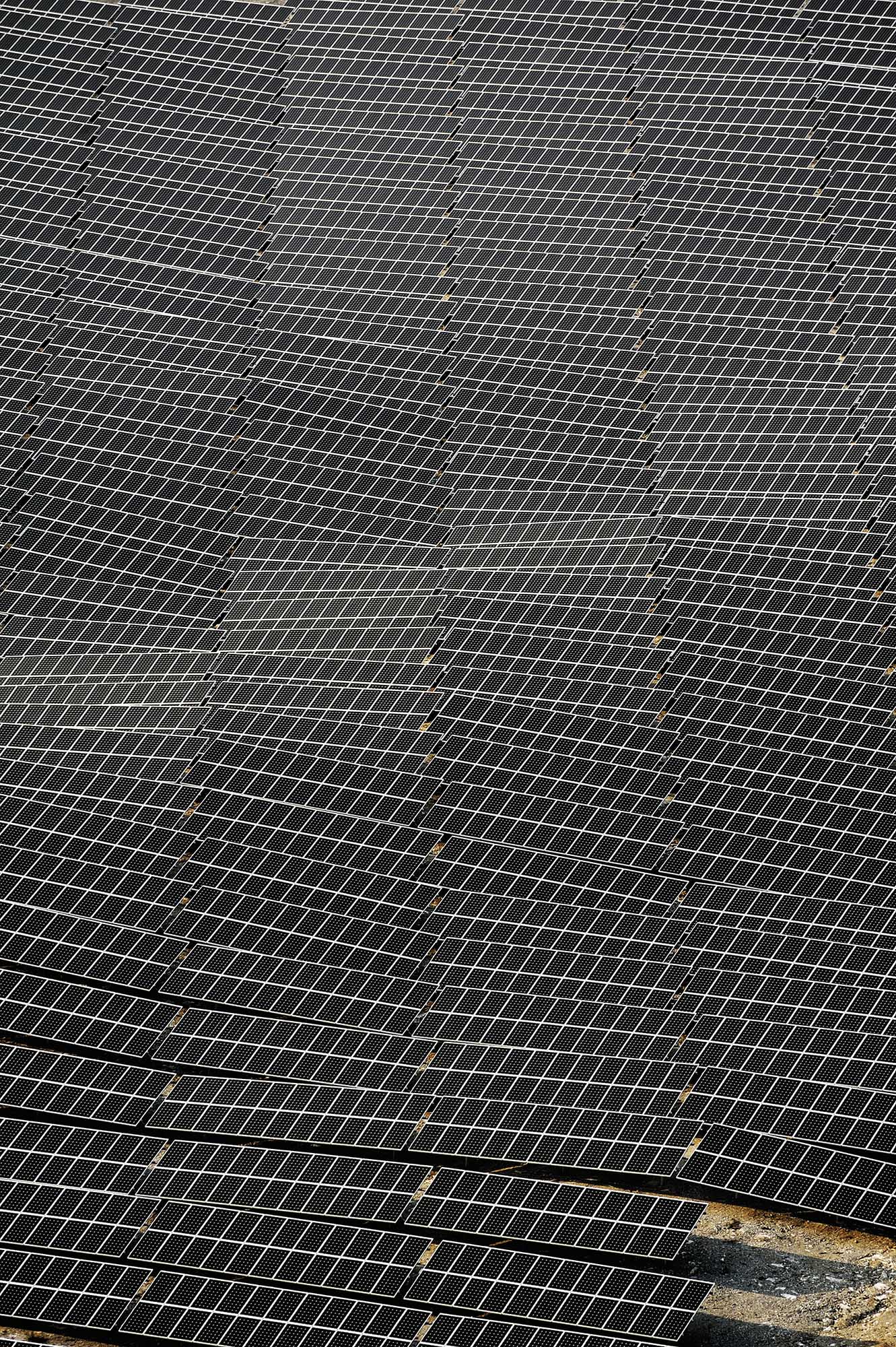This article originally appeared in Carve issue 197.
Words by Sharpy Photos licensed from Picfair.
How many times do you fly a year to surf? One long haul and a couple of short hauls are pretty standard for the regular punter. For the WSL pros, it’s double-figure long haul just for the comps before you even factor in photo trips and filming strike missions. So it’s no surprise the newly woke WSL is committing to doing something about their vast environmental footprint.
The question is, do we all need to take more drastic action? Is it time we knocked the overseas flights on the head? Awkward for a sport with exotic travel entwined in its salty DNA.
We asked some pros for their take and looked at what the hell is happening to our increasingly crispy planet.
The initial seed for this story was the worrying spring warmth in the Arctic. As I was researching the article France suffered a record meltingly brutal heat of 45.9C in June; nearly two degrees up on the previous 2003 high.
It was so hot baguettes spontaneously combusted; champagne is now only available as a vapour and cheese has replaced Orangina as the national drink. Mid-forties Celsius is the kind of temperature you associate with Qatari World Cup stadium builders’ working conditions, not our nearest neighbour.
So another summer, another heatwave and here’s me with a good swag of long haul flights under my historical belt and all of two trees planted. Yes, reader. I was having one of those ‘shit. I’m one of the bad guys?!’ moments.
As the deadline grew closer the UK scorched towards its hottest ever day, 0.4C off the record of 38.5C initially, the new record was avoided by an errant bit of cloud slipping in from France; it could well have been a cloud of Gallic sweat. But then Cambridge Uni’s Botanic Garden came through with the disturbing trump card, and after a few days of Met Office tech checks, it got confirmed as a new highest temp on record in the UK. On the same day, other Northern European countries like Germany, Belgium, and the Netherlands all set new all-time high 40C+ records. So thank you world events for fitting into my topical story about tropical temps in temperate climes perfectly.
Research is as easy as typing a few words into a computer these days (try ecosia.org instead of Google as they plant trees). As is realising that the UK was hotter than the Maldives. But it’s also a bit overwhelming: These are all news stories from 2019.
-February. The UK records warmest winter day on record. The first time it’s got over 20C in winter.
-February wettest winter on record in the US. Hottest summer in Australia on record. 2.14C above average.
-March second warmest on record globally since 1880, 43rd consecutive March and 411 successive months with global temps above average.
-April second hottest globally on record.
-CO2 record level in May.
-Late June, France, Germany, Austria, Poland and the Czech Republic recorded their highest temperatures for June. Hottest June ever in Europe, average temps 2C above normal.
-June 2019, an intense heatwave northern India. Some regions experienced temperatures surpassing 45°C for the better part of three weeks.
-July, Alaska, all-time high record temps, not just a matter of 0.1C difference either, by up to three degrees hotter than the previous record (since records began in 1952). Anchorage hit 32C when it should be 17C. June also warmest on record, five degrees above average.
-Guadalajara, Mexico. Two-metre deep hail storm during a 31C summer.
-Svalbard, Arctic Norway. Temps have risen by 4C since 1971, five times faster than the global average.
-Precipitous fall in Antarctic sea ice, losing as much ice in four years as the Arctic has in 34.
-Unprecedented Arctic wildfires across Canada, Siberia and Greenland emitted as much CO2 in June as Sweden does in a year.
So it’s not exactly a big call to say something isn’t right. Even though it seems to take a Swedish school kid to let the world know it’s on fire.
The facts are brutal. Nine out of the ten warmest years on record were this century. The only outlier, 1998, scrapes into tenth place.
Three studies published recently in Nature and Nature Geoscience use extensive historical data to show there has never been a period in the last 2,000 years when temperature changes have been as fast and widespread as in recent decades.
Now climate change is not new. As much as everyone seems to be finally waking up to it, like the plastic crisis, just recently, it’s been an issue for a very long time.
I did a geology degree between 1991 and ’94 in Welsh Wales, and it was a big discussion back then. For a large part of the course, we studied the drivers of historic climate shifts as the climate is written in the rock record and more recently the ice and sediment records. Significant processes are at play, of course, the movements of the Earth and the sun that give us the vast sawtooth of ice ages and interglacial periods over hundreds of thousands of years. It was more academic then, questions like: does climate drive CO2 or the other way round?
The Milankovitch cycles, as they’re known, where variations in orbit (eccentricity) axial tilt (obliquity) and axial precession affect the solar radiation reaching different areas of the planet along with variations in the suns activities were what it was all about. Older professors saw the new-fangled’ hockey stick’ graph upswing in temps – when the theory said the world should have been cooling towards another ice age – as ‘natural variability’, the younger Drs saw a human-induced problem.
The thing is with geological records is 200 years isn’t even a blink of an eye. In the 4.6 billion years of Earth’s history, humankind’s time is a split hair on the end of the timeline. The portion where we’ve been spewing shite into the sky another micro fraction of that.
Not to mention the global climate system is an insanely complicated thing that’s taken decades of research by thousands of boffins to get a handle on. Feedback loops in the weather system and carbon sequestration are poorly understood; not to mention the volcanic emissions wildcard. Supercomputers and satellite data were becoming valid research tools, and as such, the upswing in greenhouse gases since industrialisation was, for many academics, a blip.
I’m guessing most of those earth science professors might think differently now. Like 97 percent of climate scientists do. Nearly 30 years later not only have the wheels have come off the clown car but the tyres are on fire as well.
But don’t worry:
The global warming, it’s a hoax, it’s a money-making industry OK.
Donald Trump
But then Cheeto Jeebus does confuse weather with climate. A lot. It is a massive problem that the leader of the free world isn’t on board with the issue and happy for industry to keep on polluting. Politicians around the world are failing miserably to get to grips with the scale of the clusterfuck train barreling down the line towards us. It’s not a problem for 2050. It’s act now or who knows what’ll happen.
Some facts I jotted down from Dave Attenborough’s ‘Climate Change – The Facts’, which is well worth your eyeballs on iPlayer:
-All of this is happening far faster than we expected.
-Twenty of the warmest years occurred in the last 22 years.
-CO2 was 280 parts per million pre-coal burning/industrial revolution, now at 400+.
-Methane is 21x more potent as a greenhouse gas than CO2.
The global population has exploded since the early days of the industrial revolution and continues to swell. The countries that were later to industrialisation than the west understandably don’t want the brakes put on their progress thanks to us getting ahead of the game pollution wise. So there’s a thing called equity where they get to keep on pumping pollutants as they achieve the infrastructure, hospitals, schools, and the standard of living they want. Poorer countries also, and rightly so, think it’s a bit cheeky for us to tell them not to chop down their virgin forests when we’ve cleared ours wholesale. Just over one whole percent of the UK has original woodlands left.
So consumption is increasing, power needs are soaring, there are more mouths to feed than ever before, and forests are disappearing. Even as renewables are coming online things are running away towards a tipping point not using plastic cutlery won’t save us from.
Back to the original question: UK aviation industry contributes something like seven percent of the countries CO2 emissions, but there’s a kicker, as the other gases and the industry overall has an impact three times its CO2 contribution. Global tourism is responsible for five percent of greenhouse gas emissions and tourism has surged in recent years to unsustainable levels in many areas. Air travel has increased by 300 percent since 1990 and is set to continue booming.
Your return flight to Indo for your annual nasi goreng and tube fest generates more CO2 per passenger than the average emissions of the citizens of the 97 countries at the bottom of the emissions league (in the region of 2370kg per person). Even a hop to Lisbon for some pastel de natal and shralping emits 245kg. One tree can absorb just about two Portugal flights in its lifetime, which is not good math.
It’s an impossible task. In a world where growth is all and resources are limited, something has to give. Tourism is bad for the planet but good for the local communities that benefit from it. Unless the locals can’t even rent a flat because AirBnB has priced them out of their hometown. It’s enough to make your brain overheat.
The simple fact is we need to stop.
Consume less, fly less, work on getting the 13 tonnes of CO2 we’re each responsible for down a good whack.
Ryanair has approx 600,000 flights a year, that’s just one airline, and aviation fuel isn’t even taxed. Maybe that’s a starting point.
We need to use less power and more of it from renewables. Which in the UK at least we’re kicking ass with and as much as the government stopping help for solar installations it looks like the land-based wind will be making a comeback as long as nimbyism doesn’t bugger it up again.
As things get hotter and the Arctic continues to warm at an alarming rate the permafrost melting is going to release more than Anthrax infected reindeer carcasses (yes, that happened). Methane, which as noted by big D, is a real dick when it comes to its effect on infrared radiation being bounced back into space from whence it came.
The short version is: the permafrost melts, vast reservoirs of frozen methane from centuries of rotting peat and bio-gunk bubbles out into the atmosphere. Making all those grassy cow farts seem like a cheeky toot. Cue more warming. More melting and those of us that survive sitting in caves with crude bandanas and spectacles held together with plasters telling the ragamuffin kids what life was like before the scorching. CO2 isn’t the only bad guy in this shit show. It’s not even number one, as much as it’s the poster child for global warming. Methane, Ozone, Nitrous Oxide, CFCs and a host of industrial chemicals contribute but none more so than good old water. Yep, water vapour accounts for the main chunk of the greenhouse effect. Byproducts of fossil fuel combustion, it’s spewed daily by volcanoes, and of course, a warmer planet creates a feedback loop meaning more water vapour. How this all acts on the climate is like trying to grab steam; it’s poorly understood even now.
Urgent isn’t a good enough word. Renewables need to be pushed globally. Any bright ideas about how to convince the US to engage? The Chinese are going mad for solar at least; even building massive desert arrays in the shape of pandas. Elon Musk and friends need to figure out large scale battery storage as any British and Irish person knows you aren’t going to heat our houses in winter from solar. Wind maybe, but we need to be able to store energy from renewables in the boom times for when we need it. The electric vehicle revolution will, of course, help reduce emissions. But the resources and transport required to make batteries at scale is a whole other source of emissions. When we do go electric, the energy supply is going to need a wholesale 30 to 40 percent capacity increase. In short, emissions aren’t slowing any time soon.
Faced with this is planting trees going to fix it? It’s the cheapest option but a slow one and large scale industrial CO2 hoovering is in its infancy. There are definite signs of progress in pumping into underground stores, but it’s a long way off being a solution. As hopeless as it seems we all have to try and do our bit.
Ensure our dwellings are insulated, increasing energy efficiency and saving us cash on bills. Buying once and keeping it longer, ditch fast fashion, single-use and purchase wisely: everything has a footprint. Eat everything; food waste is a huge issue, which is even more galling as food banks are needed. Grow your own, if possible, as air-freighted fruit and veg is insane. And I, ex-McDonalds employee, steak lover, gravy connoisseur, burger licker have cut down on meat and dairy. Pretty much down to a roast chook on Sundays and a bacon sammich for brekkie Saturdays. The weekdays are meat-free. Cutting down on meat and dairy saves those nasty methane emissions. As a side note, cutting out fish is also a better option for saving the ocean, to be honest, even if they are darn tasty and good for you.
We can all knock two tonnes off our carbon footprints with some effort. Because we have two options:
1) Do something.
2) Say things like ‘We’ll have a climate like Barcelona? Brilliant.’ Then buy some air conditioning units, a lifetime supply of suncream and perhaps some stilts for the house if you live near sea level.
As for the WSL pledging to do better? It’s a start. But with the current tour schedule, the CO2 emissions per surfer on the men’s tour are approx 13,170 kgs, times top 34 plus two wildcards is just short of half a million kgs. That’s not even counting judges, WSL peeps, production crew and the women tour. So it’s probably looking to be about a rough mill. Which depending on where you look for stats is somewhere between 2000 and 4000 trees a year they need to plant. So a healthy forest a year, which is no bad thing … Assuming said forests don’t burn down of course.
VOX POP
Do you think frequenters flyers should be taxed?
Why only frequent flyers? I know nothing about taxes or airport/flying taxes, but a few quid on any flight not just frequent flyers to plant a few trees seems like a good idea to me, and I’m sure it’s even an option when you book through some travel companies.
Andrew Cotton
This would make people think twice about the amount they travel. However, I’m not sure it’s necessarily the best option. I think the airlines themselves should almost use the benefit of good publicity and take environmental action themselves, planting trees, protecting parts of the Amazon / rare species, whatever they decide. We can then choose to fly with the airlines that are doing their part, and if it means their flight prices go up a little, then that’s fair enough.
Lucy Campbell
Yes. I think those of us who have the means (flying more than a couple of times a year) absolutely should. I also think huge responsibility lies with the aviation industry to improve fuel efficiency, cleaner air travel and put an end to excessive waste. Pressure needs to come from people and governments, not always blaming individual behaviour. Restoring the natural, especially coastal and marine ecosystems, is one of the most critical climate solutions.
Easkey Britton
I would be more than happy to be taxed on my flights throughout the year so long as that money was going towards bettering the state of the environment. I think most people would pay an extra few bob if it meant trees would be planted to help counteract their carbon footprint. It would be great if airlines made an effort to offset their negative impact by contributing a small percentage of each flight towards saving the planet.
Conor Maguire
I guess the logic behind a flight tax works. Just plant enough trees to offset each journey and job done. But from what I’ve read, our ability to offset the CO2 quickly is pretty limited. Planting trees is cheap and easy but takes a long time to soak up the carbon and takes up a considerable amount of land. Other technologies to suck carbon from the air seem like they’re still a little way away too. So even if everyone was to pay a “green tax” on their flights, I don’t know if we actually can suck all the carbon out of the air quickly enough. I think it’s best we all do our bit to try and limit our consumption wherever we can, at least until we’re confident in our ability to sequester what we pump out. Either way, though, a tax would help fund any sequestration schemes or technology advances that are already out there.
Jobe Harriss
Surfing is powered in large part by the dream of travel. Do we, like Ferg, all need to enjoy our front yards as opposed to flying?
I think this is very much down to the individual and their ambitions and goals. I love my front yard, but I’m also pretty ambitious with my surfing, which unfortunately means I feel the need to travel to find the biggest waves. Not to say it can’t be done without flying and reducing my carbon footprint it just takes a bit more planning and time, definitely something I’m conscious of, and I try to reduce if I can. In a vast amount of jobs, industries and careers, air travel is essential and routine part of the working week, month or year. I see my travelling as part of my job.
Cotty
I don’t think we should stop travelling. A lot of coastal communities around the world are now highly dependent on tourism to survive. I do believe we have to travel a lot less than we do and move slower. Flight shame is real thanks to Greta. There should be more incentives for this; to go by rail, sail or bike! I wanted to take the Santander ferry home from an event in Spain, but they don’t take foot passengers. So I went by train & took Irish Ferries from France. I appreciate this takes more time and time can be a luxury. But those who can, should.
There are those of us where travel is also part of our livelihood. So taking responsibility for that is essential. If you’re sponsored or a competing athlete the events and sponsors should have carbon offsetting, and it’s even better to invest in ‘blue carbon’ initiatives which absorb a lot more CO2 like Sea Trees & Project Seagrass.
seatrees.com projectseagrass.org
I think professional surfers need to be more vocal ambassadors for protecting what they love not just the products they wear, learn about these solutions, and give them a voice because they have a platform and followers. They have influence and can put pressure on the companies that sponsor them and the events they go to.
Easkey
I think Ferg’s approach is very honourable and inspiring. Change always begins with the consumer, so to make that decision is a great start and not easy. Especially when you’re dream is to be a professional surfer who chases swells around the globe, like Ferg used to. Ferg was lucky enough to live the dream for years and travelled far and wide consistently for a long time. That’s how he made such a big name for himself. He sacrificed his professional surfing career out of guilt of destroying the planet and gave up flying to set up a farm and live more sustainably. Something few people would be prepared to do.
If there were more people with Fergal’s attitude and willingness for change, then we might see a difference. Some may argue that the plane will be taking off regardless of one person’s decision not to fly, which is a valid enough argument. As much as I’d love to see fewer planes taking off, there are so many flights every day and so many people that want to see the world, that I can’t see things changing drastically anytime soon unless a more eco-friendly mode of fast travel is implemented.
Conor
In an ideal world, of course, we should ditch flying and hunting down waves around the world. But I can’t see anyone doing that anytime soon, and it’s all very well for me to suggest that after I’ve already travelled pretty extensively. I do think we all need to embrace and enjoy our backyards a bit more, but there are so many benefits to travelling besides the waves that can’t be ignored. Travelling lets you see all these beautiful places around the world and makes you appreciate them so much more, making you more inclined to try and protect them.
I’m not sure on the numbers when it comes to how much better it is to travel an equal distance by car rather than by plane, but yeah maybe driving, catching the train and getting ferries is the best of both worlds. It might take you two weeks to get to Indo, but it would be the most mental experience.
Jobe
Can you imagine being a British/Irish surfer without flying?
That’s a really tough question, and I think I always looked at Oz or Hawaii thinking they had the perfect waves, so I may be ignored what we had so close. Europe is fantastic with a huge variety of waves which can all be done by car or van.
Cotty
Yes, sure it would be a long chilly winter (I realise I’m pretty jammy to be able to say that), but with the waves, we get especially in Scotland, Ireland, France and Spain I can’t imagine it being a big issue. It would probably be complicated to compete on the QS though.
Lucy
I’ve found great joy in staying closer to home these last few years and exploring more of the nooks and crannies of my coastline. Unless I feel the potential positive impact of going to a place, like the importance of creating positive cross-cultural connections, documenting and sharing diverse stories that celebrate our diversity and differences to help humans better understand each other, outweighs the environmental cost of the travel, then I won’t go. Even then, I’m still planting trees like mad on the west coast of Ireland to make up for all the years of having the luxury to travel so much. Unfortunately, those days are gone. As much as possible, I’m embracing the fact I’m a cold water surfer, and this is my habitat.
Easkey
Luckily, I’ve had the opportunity to travel a bit so I think I’d be happy enough to live out my days surfing in Ireland if I had no other choice. I might be very deficient in vitamin D, but at least I’d still be getting barrelled. There are still so many places I’d love to visit so I can’t see myself giving up flying just yet.
Conor
I haven’t left the country for over 18 months now, so I feel like I don’t need to imagine haha! But if you’re wanting to build a career out of surfing it would be virtually impossible to do it without flying. Getting to contests and warmer waters in winter to train would be a ballache. For anyone else, though it would still be super tough, seeing all the videos and pictures of waves from around the world gets you too frothed, you have to find them.
Jobe
What, in your mind, is the one most crucial act any surfer reading this can do to help stop climate change?
Do your bit, change habits and be conscious. No matter how small it all makes a difference.
Cotty
I think everyone, not just surfers, should all be aiming to reduce fuel usage, eat fewer animal products, clothes swapping/buying vintage / supporting clothing brands that make products from reclaimed materials. Be mindful of plastic usage and buy more locally.
Lucy
Surf local. Support a blue carbon initiative like the Sea Trees. If there’s no surf, instead of chasing waves, try other ways of immersing yourself in the sea while you wait – go dive, swim, kayak. It’s all good, and you learn new and different things about yourself and the sea!
Easkey
Living more consciously and taking steps towards living more sustainably is a good start. Being aware of your day to day habits that negatively impact the Earth’s future is step one. I find that once you take baby steps and try your best to change small bad habits, then your efforts begin to snowball. Things like picking up rubbish on the beach on your way back from a surf, refusing single-use and trying to shop plastic-free are all a great start. It’s nice to see more prominent companies starting to catch on to the consumer too. Lidl (in Bundoran anyway) now have recycling bins at the exit for packaging so you can leave your plastic/cardboard there. I know they should ditch the plastic packaging altogether, but at least it’s something.
Conor
I don’t think it’s possible to narrow it down to “one most important thing.” Climate change and pollution are so multifaceted that everyone needs to be doing anything and everything they can. That being said, I think being entrepreneurial is a goody. Big business and politicians seem to be doing nothing about climate change. I hate all the cringe talk of “We need to be the difference” or “be the change you want to see in the world” haha, but in a nutshell, it’s right. Create, make or build a business/product that addresses the environmental issues you want to tackle. No matter how much we all hate it, money talks and if you can create something which makes money and is good for the planet. It’s a win-win.
Jobe



